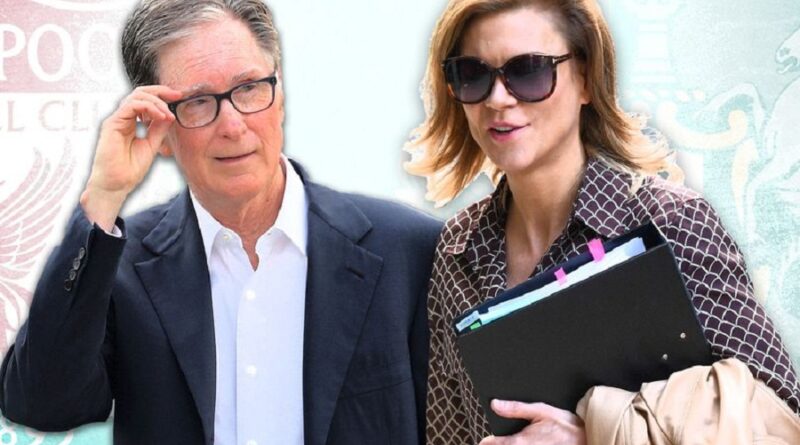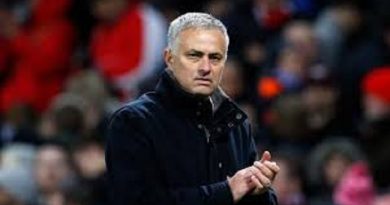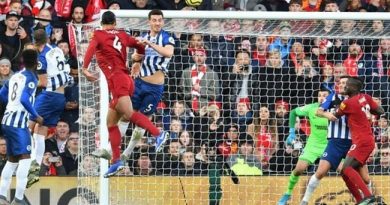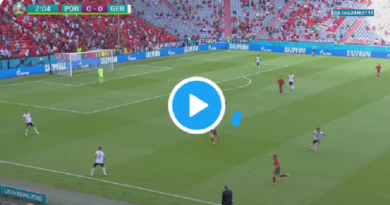Newcastle United Owners Set to Buy Super Club to Give Liverpool Long-Term Boost
Newcastle United Owners Set to Buy Super Club to Give Liverpool Long-Term Boost
Neweranews learnt that the Newcastle Owners are planning to buy new clubs to boost long-term goals.
When the Saudi Arabian Public Investment Fund (PIF) completed their takeover of Newcastle United in October much of the chatter surrounded what the future may hold.
Manchester City’s own takeover by Sheikh Mansour’s Abu Dhabi United Group back in 2008 set them on a path from Premier League also-rans to being the ones who the rest have to chase.
Their heavy investment in both recruitment and infrastructure has seen them become a European powerhouse, one that has the financial might to match any club in the world.
Chelsea were another, albeit some years earlier, to benefit from a takeover and an injection of capital into the club, capital that would prove transformational for the Stamford Bridge side under the ownership of Roman Abramovich.
Premier League and Champions League titles followed and, like Manchester City, they are seen as being among the elite of English football, the very best of the best.
For an older generation, not too long ago, their present status is some way removed from where they were.
The rise of both City and Chelsea come before Financial Fair Play regulations, meaning that by the time they were introduced in 2011 the clubs had already done the leg work in getting themselves in a position to challenge the dominant positions of Liverpool, Manchester United and Arsenal.
Liverpool had ground to make up in the past decade under the ownership of Fenway Sports Group, and a Champions League and Premier League title has arrived more on the back of strategy than heavy transfer spend, although their success in increasing revenues has enabled them to become one of the Premier League’s biggest payers when it comes to the wage bill.
The arrival of PIF at Newcastle was something that 18 of the 20 Premier League member clubs, Man City being the other, had pushed back against.
Newcastle United Owners Set to Buy Super Club to Give Liverpool Long-Term Boost
A sovereign wealth fund worth over £350bn created the threat of major spending that would, in time, allow for Newcastle to challenge the so-called ‘big six’ and create a new landscape in English football.
Roadblocks were put in place to initially ban related party sponsorship deals arriving at St James’ Park, something that would have allowed for PIF to invest more money in first-team affairs without being in breach of FFP rules.
And while some common ground was found on that, with an agreement made that related party transactions must be of fair market value, it was a clear sign of some concern over the potential that Newcastle possessed to challenge dominance, which has been so very lucrative for the biggest clubs, in the future.
Such a change wouldn’t happen overnight, as FFP rules would not allow for it, but over a period of time, and with investment into infrastructure that could turn into bigger revenue generation not being included in FFP calculations, the Magpies had the financial wherewithal to make that leap.
And while their focus in the here and now is very much on remaining a Premier League side, they will undoubtedly want to be competitors in the not too distant future.
That is, after all, one of the main motivating factors for their investment.
There is very little chance of a return being made, especially when you consider that in the past five years only Burnley and Liverpool have been in economic profit, and the economic losses of the Premier League itself amount to some £1.4bn.
It has been done to enhance the image of Saudi Arabia and open the gateway to a new generation.
But developments this week posed some interesting questions over PIF’s long-term strategy at Newcastle, developments that could mean that the fear that the likes of Liverpool, whose model of financial sustainability and success going hand in hand would have been most under threat by a new high roller at the blackjack table, may not be as great as it was when the deal was first announced.
Reports in the International Business Times last week suggested that PIF were ready to spend £740m ($1bn) on purchasing a majority stake in Italian giants Inter Milan from the Suning Group.
It comes on the back of PIF being linked with investment in French football with Olympique Marseille.
Now, there is nothing that prohibits club owners owning more than one football team, in fact it is something that has been a major push for Manchester City owners City Football Group, who own more than 10, and the Red Bull group that consists of RB Leipzig and Red Bull Salzburg among others. Liverpool owners FSG are understood to have an interest in acquiring more football teams to add to their sporting empire, so too are the 11 per cent stakeholders in FSG, RedBird Capital Partners, who already own a majority stake in French second division side Toulouse and a small shareholding in Spanish club Malaga.
Unlike Newcastle, a club who had not succeeded on the pitch but who had succeeded in running a fairly tight ship when it came to the balance sheet, Inter are in financial distress.
But they are a club who have enormous pull, being 19-time Serie A champions and three-time European Cup/Champions League winners.
They are a club big enough to have been invited to be a part of the doomed European Super League plot that took place in April last year, and a club that is based in one of the most iconic and marketable cities in the world; Milan.
But if should a deal materialised, and it remains an ‘if’, then it would undoubtedly cause some problems further on down the line if PIF had plans for Newcastle to be a dominant force in English football.
There is no way that PIF would take over a club like Milan, already a big hitter, and not want the same for them as Paris Saint-Germain’s Qatari owners QSI would want for their club, or indeed what Sheikh Mansour wanted, and continues to want for Manchester City.
They would be aiming to turn them into Champions League contenders once more, and with the wealth at their disposal to do that, and having to invest far less than they would at Newcastle to make it happen, then it is a deal that makes sense.
The issue for Newcastle would be how that affects their own ambitions for the club, and if they aren’t accelerated at the level that some thought they might be at the start then that could spell better news for the ambitions of the likes of FSG at Liverpool, an ownership group who operate with a very different mindset that the likes of PIF, one where the success has to pay for itself.
The problem lies in that club owners cannot have a decisive influence over two clubs competing in the same competition.
Should Newcastle achieve Champions League football, as was the hope for Newcastle fans when PIF arrived on the scene, then it would mean that something would have to give should they be in the same competition as Inter.
It is an issue that is not without precedent.
In the summer of 2017, UEFA was required to rule on this issue in relation to the Red Bull ownership of RB Leipzig and Red Bull Salzburg, both of whom had qualified for the 2017/18 Champions League.
There was concern that Red Bull’s decisive influence over both teams could impact the integrity of the competition, with RB Leipzig and Salzburg both having high levels of sponsorship income from Red Bull, a co-operation agreement in place, high levels of loans and transfers between the two, individuals connected to Red Bull working across both clubs and similar kit and advertising branding.
In his book ‘Done Deal’, author and sports lawyer Daniel Geey explained: “In order to allow both clubs to compete in the Champions League, Red Bull Salzburg agreed to remove certain individuals linked to Red Bull and to terminate a loan it had with Red Bull.
In addition, a co-operation agreement between Red Bull Salzburg and RB Leipzig was terminated, while the sponsorship agreement between Red Bull Salzburg and Red Bull was amended to reduce the rights granted and the amounts paid by Red Bull.
“UEFA was now of the view that the Red Bull Salzburg and Red Bull relationship was one of sponsorship, not ownership. Therefore, Red Bull did not have decisive influence over both clubs. Both teams were able to play in the 2017/18 Champions League.”
It’s not an immediate issue that PIF would have to face, nor would it be a problem for many Newcastle fans if it meant that their team were pushing for Champions League football in a few years.
But the nature of the changes that were required to allow both Red Bull teams to compete raises questions over who would be Leipzig and who would be Salzburg when it came to Inter and Newcastle.
Leipzig is the side that sits at the summit of the Red Bull pyramid, and would Inter really be the ones to make the sacrifices like Salzburg did if they were to have cost their owners £440m more to purchase and were undoubtedly the bigger fish.
Liverpool’s success and continued involvement in the Champions League, not to mention their enduring global appeal, allows for them to generate far greater revenues than Newcastle, and one only needs to look across Stanley Park to see Everton’s current financial woes to understand that even having willing spenders owning the club isn’t a guaranteed route to success, with owner Farhad Moshiri having sought to spend to bridge the gap, only for the club to fall well short and end up in a period of FFP-enforced austerity.
Newcastle will undoubtedly have the means to improve in the coming seasons, but they may find that there is a ceiling should their owners decide to bring another major club into the mix in the near future.
And that might be beneficial for Liverpool in the longer term.




